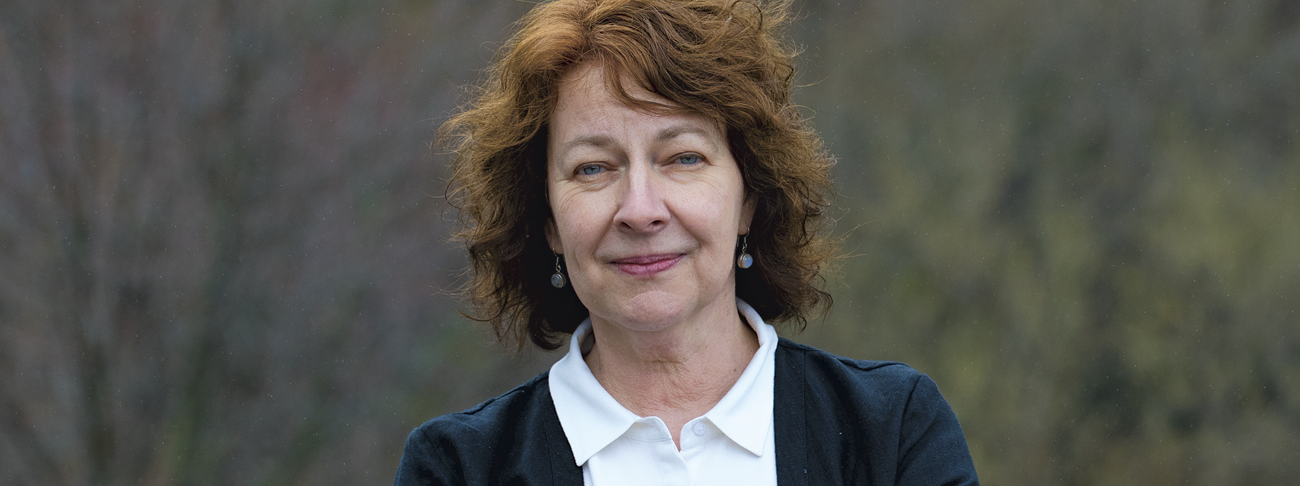
By Brenda Austin-Smith
“How did you go bankrupt?” one character asks another in Hemingway’s The Sun Also Rises. “Two ways,” comes the answer: “Gradually and then suddenly.” The phrase fits the moment, as two academic disasters unfold. One, the apparent insolvency of Laurentian University seemed to have happened overnight. The other, the dismantling of Alberta’s post-secondary system by that province’s government, has been slow and steady, though it is heading in a similar direction. No matter where we look, we see the destructive effects of political attacks on higher education that involve the weaponizing of funding and the use of legislation to wriggle out of collective agreements and undo collegial governance, the cornerstone of autonomy in our system.
The whittling away of financial support for colleges and universities has been an existential threat to our sector for years, but CAUT members might not realize how bad things are. Canada ranks twenty-eighth out of thirty-five OECD countries in terms of public funding for post-secondary education (PSE). Public money accounts for only 54% of PSE funding in Canada. The rest is all private. That puts us behind the entire EU block and ahead of only the UK, Japan, the USA, Chile, Australia, Korea and New Zealand. It’s nothing to be proud of. In 1992, the federal government’s contribution to PSE amounted to $3,432 per post-secondary student (in 2019$). In 2018-19, the federal government’s per student contribution was only $2,046. There hasn’t been a top-up to core funding for PSE since 2008, during the Harper government. The erosion of public funding in our sector leads directly to higher tuition costs for students and their families, more part-time and precarious teaching, and all the other negative outcomes our members experience and witness each day. This is the gradual part of the picture.
But what places like Alberta show us is how provincial governments compound and accelerate that damage. Even as COVID upended the work of colleagues, the Kenney government announced cuts of $117.6 million to university and college grants. These were distributed differentially, with some shouldering cuts of up to 20%. There was no adjustment for inflation; the tuition cap was lifted, and education tax credits were eliminated. The scale of this withholding is breathtaking. In 2019, the University of Alberta faced a loss of $44 million to its budget; the University of Calgary faced losses of over $32 million. The University estimates that almost 1100 full time equivalent jobs will be lost there alone between 2019 and 2022. Future plans to tie PSE funding to performance metrics have been shelved during the pandemic, but it’s not clear for how long.
These moves are designed to force the entire sector to fulfill the narrow, utilitarian goals of a provincial government that has no interest in education for the public good. Slashing supports for education in a pandemic is one of the worst things a government can do. And to what end? PSE already prepares students for practical and professional trades and careers. But it has always done much more than this. Transforming universities into job training centres is no way to encourage the creativity and responsiveness that businesses claim they want. You don’t get from a novel virus to a vaccine by stripping academics of the freedom and resources they need to find answers to global problems. The coercive restructuring of the Alberta academic system threatens the independence and quality of the institutions that manage to survive it. The edge that separates viability from total collapse is visible from here.
And then there is Laurentian. The administration did not inform the academic staff association of its plan to file for insolvency protection before invoking the Companies’ Creditors Arrangement Act. But there were signs of trouble before this announcement on February 1. The academic staff association has over 100 active grievances — one for every six of its members. The university board has refused to engage in good business practices let alone collegial governance. It has trampled over the academic decisions of its Senate, made poor financial decisions, and refused calls for reliable financial information and accountability. The administration could have invoked the financial exigency clause of the collective agreement, but chose to style itself as a business run into the ground rather than a public university with responsibilities to its staff, who will now join a long line of creditors. It all happened gradually until it was all of a sudden.
Holding Laurentian’s failed administration to account, and seeking fairness for our colleagues, will require political action. So will helping CAUT members and allies in Alberta. Sign the petitions, join the honk-at-thons, build snow penguins at the legislature, hold online meetings to share strategy. Phone your MLA or MPP and then join CAUT in urging the federal government to increase the funding that can stave off more disasters. These are problems decades in the making, and only our collective action can stop more of them from happening.